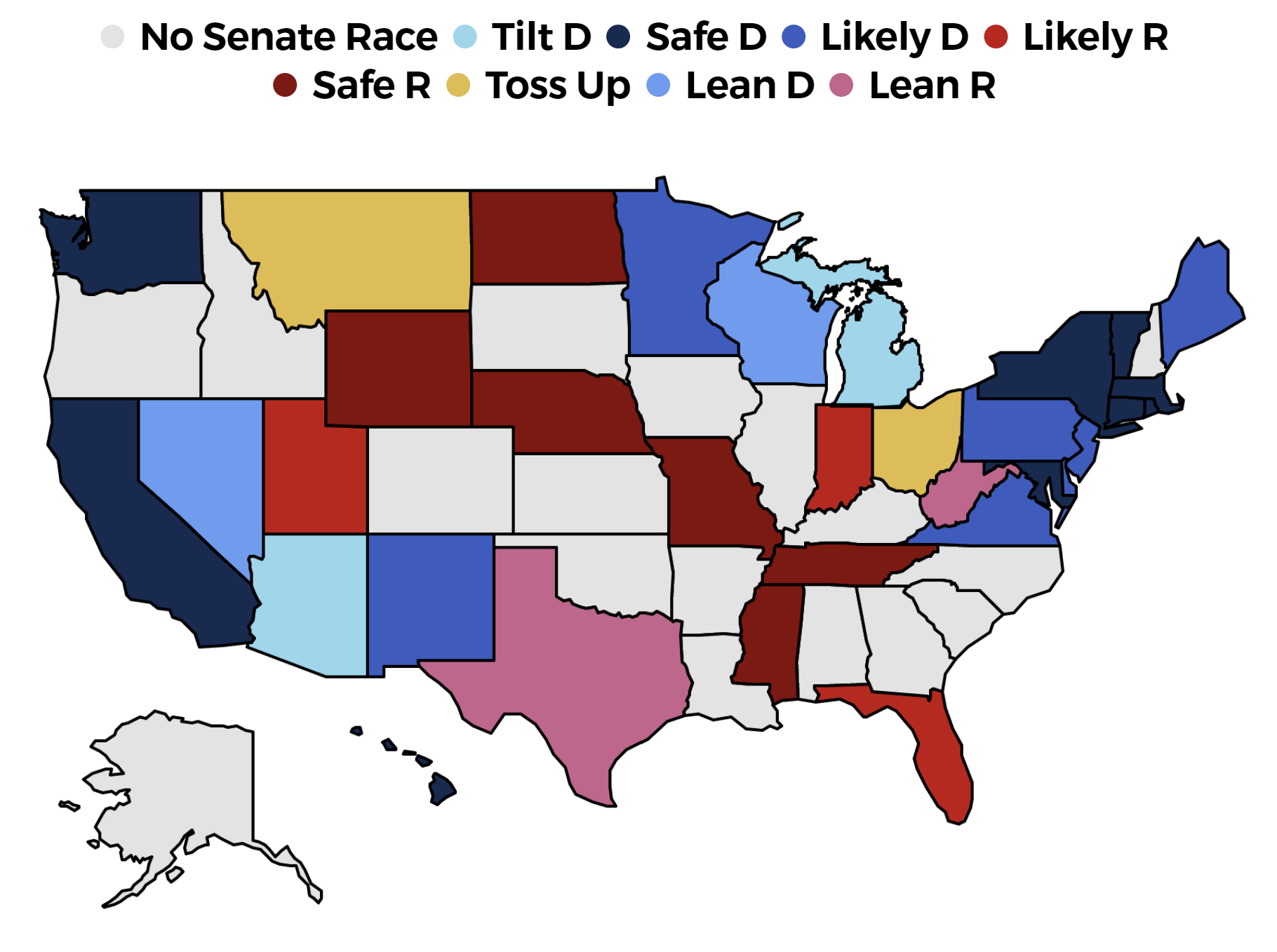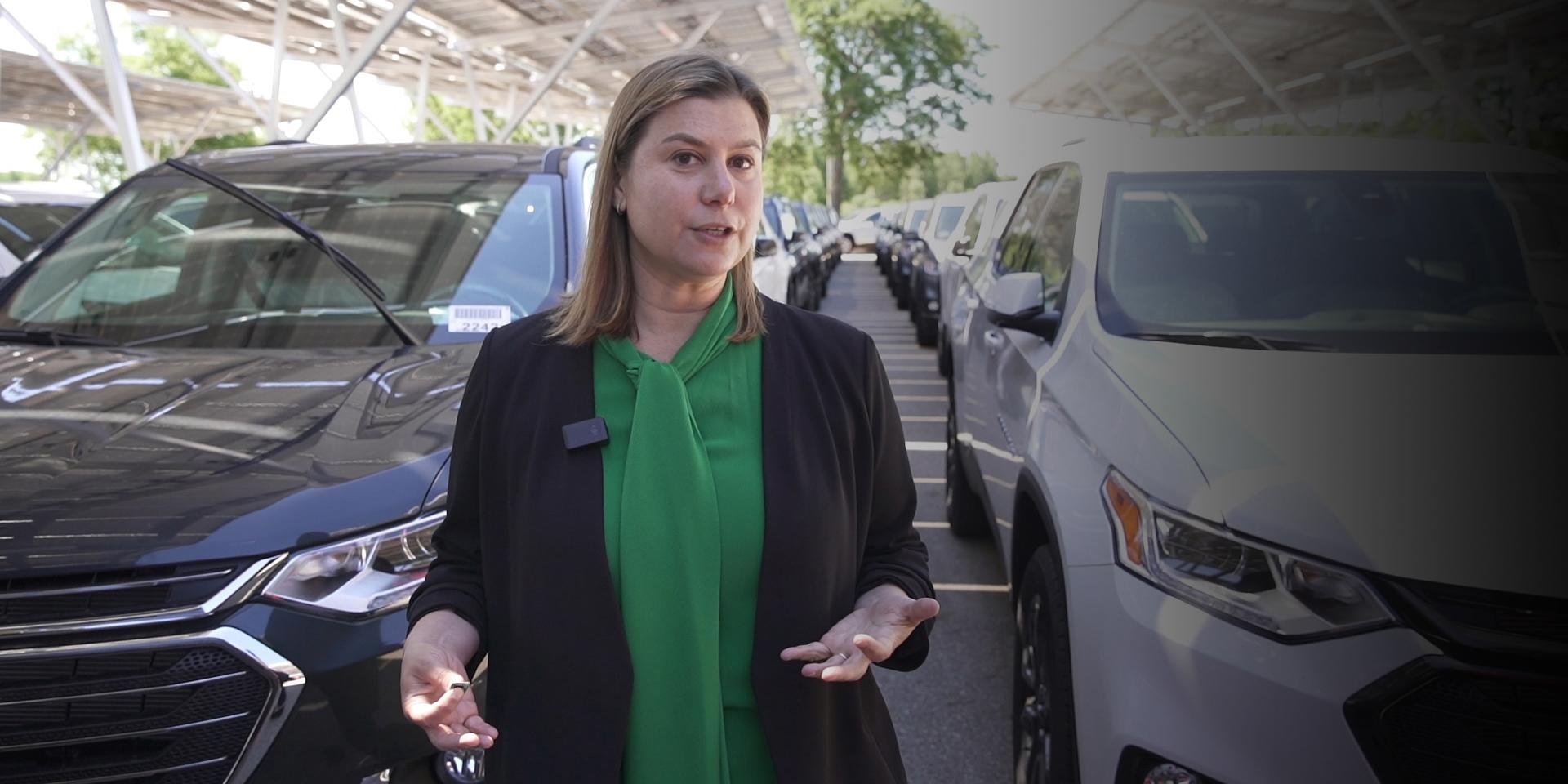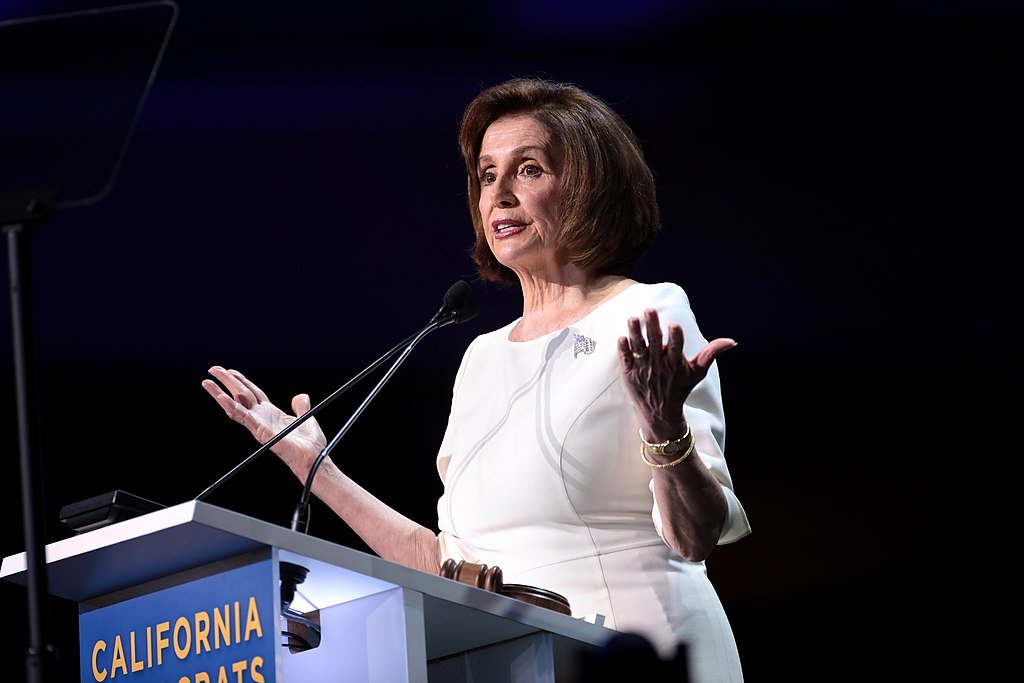Turnout Encourages Democratic Hopes, Making Georgia a Straight Down the Middle Tossup
Photo Credit: US Capitol/Public Domain
Written by: Logan Phillips
Date: January 1st
In just four days, it will be election day once again in Georgia in a historic double senate runoff that will define the American political landscape for the next two years. Even just a month ago, our forecast showed the Republican party with a modest edge, but the race has become even more competitive in the last few weeks alone.
Our forecast shows Republicans with a 52% chance of winning, down from 60% at the beginning of December. However, it doesn’t take into account the early voting turnout, which has provided encouraging news for Democrats. I’d go as far as to say that they are now the very narrow favorites in the runoff.
Almost across the board, Democratic leaning groups are making up a higher percentage of the electorate of all early votes cast, including both in-person and absentee votes. This is particularly true for African American voters.
Data from Early Voting was crunched by NY Times Pollster/Datawiz Nate Cohen
As you can see from the interactive feature above, this is a meaningful and encouraging sign for Democrats. This should soothe Democratic fears of a drop in turnout now that Donald Trump is no longer on the ballot. If everything else held equal from the General Election, it would likely be enough to make up David Perdue’s 1.8% lead in November.
However, there are two things that should give us pause. First, it’s possible that Democrat-leaning voters have just shifted more towards early voting after having a good experience with it in the first round. Second, Republicans could make up for their early voting mini-slump with an even higher percentage of the election day vote. Remember - it’s not enough for Jon Ossoff to simply do better - he needs to win 1.8% more of the vote, or persuade new Perdue voters over to his side.
The other encouraging news for Democrats is the consistently positive polling that has shifted in their favor over the past month. Ossoff and Warnock have seen their leads swell to about 2.0% and 2.5% respectively after three straight polls showed them in the lead (including Trafalgar Group, which is historically a pollster that has been heavily biased towards the Republican party). A 2.0% advantage is certainly notable and buoys Ossoff’s and Warnock’s chances, but it's hardly decisive. We can’t be sure if the shift is just statistical noise or a sign of changing voter preferences.
One group that might be the most open to persuasion are the voters that supported Joe Biden in November but also cast their vote for Republican David Perdue in the November election (there is no fair comparison for Raphael Warnock (D) and Kelly Loeffler (R), as they were in a competitive, open election that had over 20 candidates).
Biden outperformed Ossoff by about 2% statewide, and the gap was greatest in the Sixth Congressional district, which sits in the Atlanta suburbs. The sixth congressional district used to be a Republican stronghold but has shifted significantly towards Democrats in the last eight years, like many suburban communities across the country with high numbers of white college-educated voters. They voted decisively for Biden by 11%, while voting in favor of Ossoff by only 6%. Could we see some of these split-ticket voters shifting in the runoff?
Perhaps. David Perdue and Kelly Loeffler have continued to stand by President Trumps’s bizarre and unsubstantiated claims that the election was somehow a grand fraudulent hoax. They may feel this is their only option in order to secure high levels of turnout from Trump's base, but it won't help them win over swing voters. It could be especially damaging to traditionally Republican voters that may not have completely moved on from the GOP but don't like the Donald Trump-style of politics.
It's possible that some of these voters could stay home out of disgust - or that they could even cast their vote for the Democratic candidates to punish Perdue and Loeffler for being complicit in Donald Trump's final grand act of political theatre. Then again, they may hold their nose and vote for Republicans anyway. Traditionally, these voters have shown a preference for conservative policy, even if that is beginning to shift as the suburbs diversify and college-educated voters move towards the Democratic party.
Finally, don’t underestimate the fear factor. Both Perdue and Loeffler have run ad campaigns warning that this election is all that stands between the Republic and a radical socialist America. In reality, these siren songs are far higher on hyperbole than facts. The Senate is called the world's most deliberative body for a reason. Even a sixty senate majority can be remarkably slow and resistant to transformative change, and this would be doubly true in a Senate split 50-50, which is the best-case scenario for Democrats.
Democrats would need significant bipartisan support to achieve almost any piece of legislation. In other words, even if every elected member of the Democratic party wanted to make America socialist, they wouldn’t have anywhere near the votes to make it possible. Even if they did have the votes, there is a wide variety of political views and perspectives within the party - from Conservative Democrats like Joe Manchin to the most liberal members like Bernie Sanders. Even the Democratic socialist support policy that shares very little in common with the Hugo Chavez, authoritarian government version of socialism that Republicans often warn is just around the bend.
However, these types of attacks work in part because the inner workings of the Senate are at the very best murky to the average American voter. Over a dozen Republican Senate campaigns papered the television airwaves with similar doomsday warnings in 2020, and they did manage to outperform expectations in most races. It’s very difficult to ascertain if these types of ads effectively contributed to that result, but we can’t rule out the possibility.
My forecast gives Republicans a 53% chance of victory, although there is no way to include the early voting numbers in my model. The best reason for Republicans to be optimistic remains the November election, which is still probably the single best data point to predict the runoff. Republican incumbent David Perdue outperformed Democratic challenger Jon Ossoff by 1.8%. However, the polling, early voting, and record breaking fundraising from small-dollar donors all provide encouraging signs for the Democratic candidates. Ultimately, all four candidates continue to have a clear and credible pathway to victory.
Explore our latest projections in the Georgia Senate Forecast, which runs 100,000 simulations an update. We were one of the nation’s most accurate forecast in 2020, and we accurately predicted that Biden would narrowly win Georgia.















